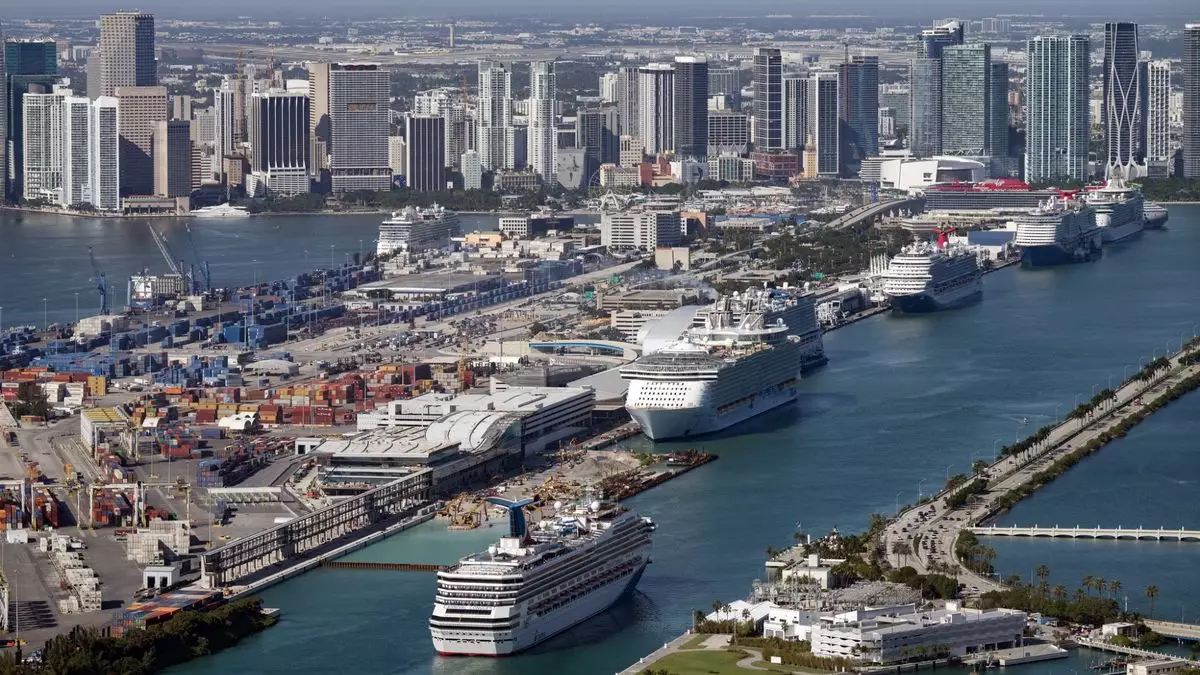On October 1, 2023, the International Longshoremen’s Association (ILA) initiated a strike that significantly affected port operations across the United States, stretching from Maine all the way down to Texas. The ILA, a crucial player in the logistics and transportation sector, represents dockworkers who are vital for maintaining the flow of goods into American markets. This strike was not merely a labor dispute; it was a strategic move to demand increased wages and express opposition to automation’s encroachment on traditional jobs. The ramifications of this strike were immediate and far-reaching, raising concerns about potential shortages in essential goods and the supply chain as a whole.
In an effort to mitigate disruption, the ILA announced that operations involving passenger cruise ships would continue unabated. This decision stems from a recognition of the significant investment and planning that families engage in when booking cruise vacations often well in advance—sometimes over a year. Harold Daggett, president of the ILA, stated, “We understand that many families plan and pay for cruise vacations on passenger ships more than a year out, and we don’t want them to be disappointed or inconvenienced in any way.” This balance of supporting both workers’ rights and consumer interests showcases the ILA’s strategic approach to labor relations during a time of discord.
The ILA has also committed to maintaining operations concerning the handling of U.S. military cargo, emphasizing the union’s dedication to national security and operational integrity. This decision illustrates the complexities inherent in labor disputes within sectors deemed critical for public safety and welfare. Despite the ongoing strike, essential supply chains for military provisions remain intact, signaling a clear message from the union about prioritizing mission-critical tasks over commercial operations.
While the ILA has taken steps to mitigate the impact on cruise operations and military supply, the stoppage at 36 port locations affecting various cargo ships is likely to have more pronounced repercussions. Delays and an inability to unload critical goods could lead to notable shortages in grocery stores and a delay in car deliveries. Should the strike extend beyond a few weeks, consumers may face empty shelves and long wait times for essential products. The broader implications could disrupt not just local economies but also the national supply chain, heightening inflationary pressures and consumer discontent.
Industry Reactions
The response from companies within the cruise industry has been overwhelmingly appreciative of ILA’s efforts to keep passenger operations running smoothly. A representative from Norwegian Cruise Line Holdings acknowledged the union’s commitment as a positive development for travelers eager to embark on their planned voyages. However, the underlying tensions of the strike continue to loom over the logistics sector, serving as a stark reminder of the delicate balance between labor rights and operational capacities in today’s economy.
The ILA strike presents a multifaceted dilemma that reveals the interconnected nature of labor actions, consumer rights, and supply chain logistics. While the union’s decisions may foster goodwill among cruise passengers and military operations, the potential for severe disruptions to trade and essential goods remains a concerning reality. As situations unfold, it sheds light on the pressing need for dialogue between labor organizations and industry stakeholders to address these critical issues going forward.


Leave a Reply